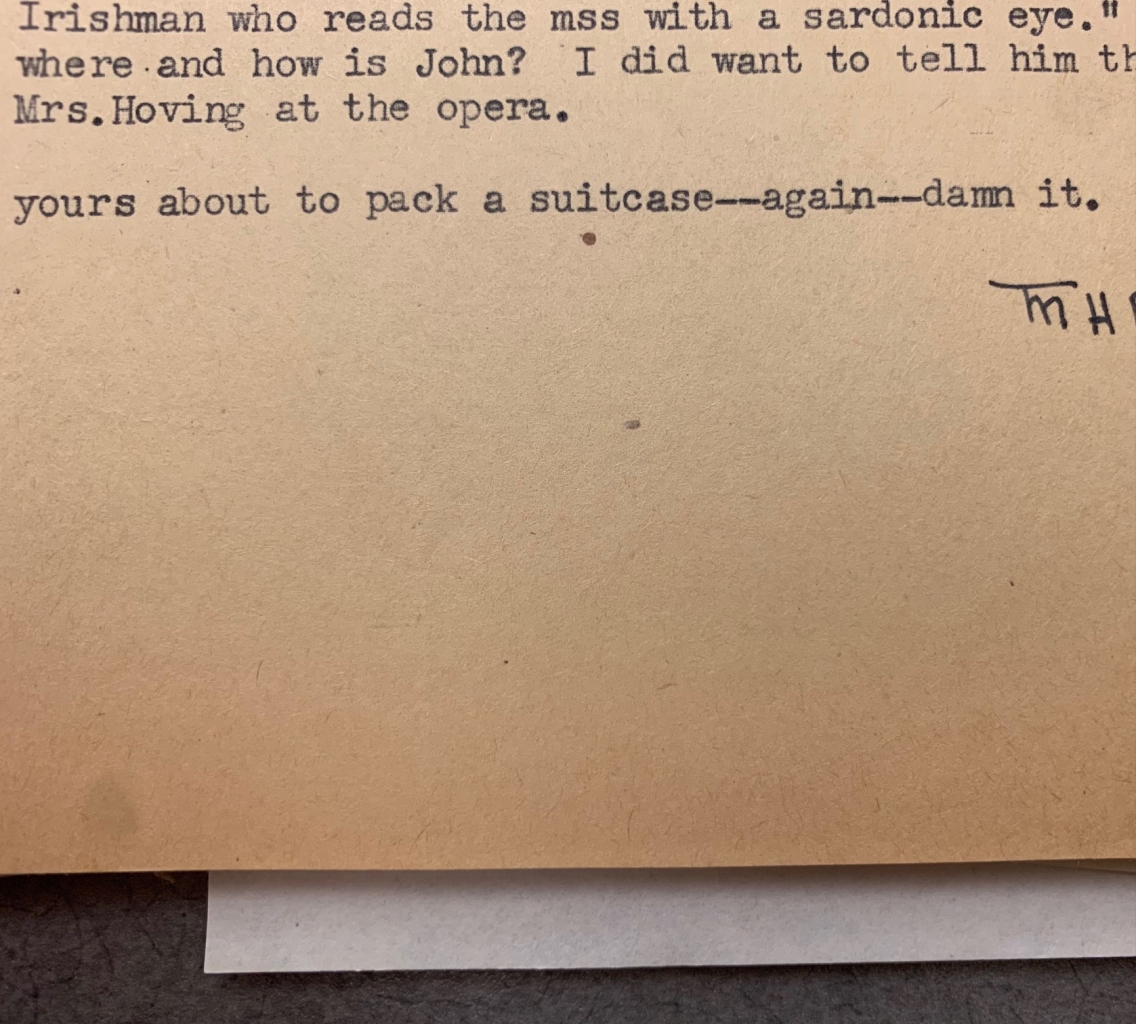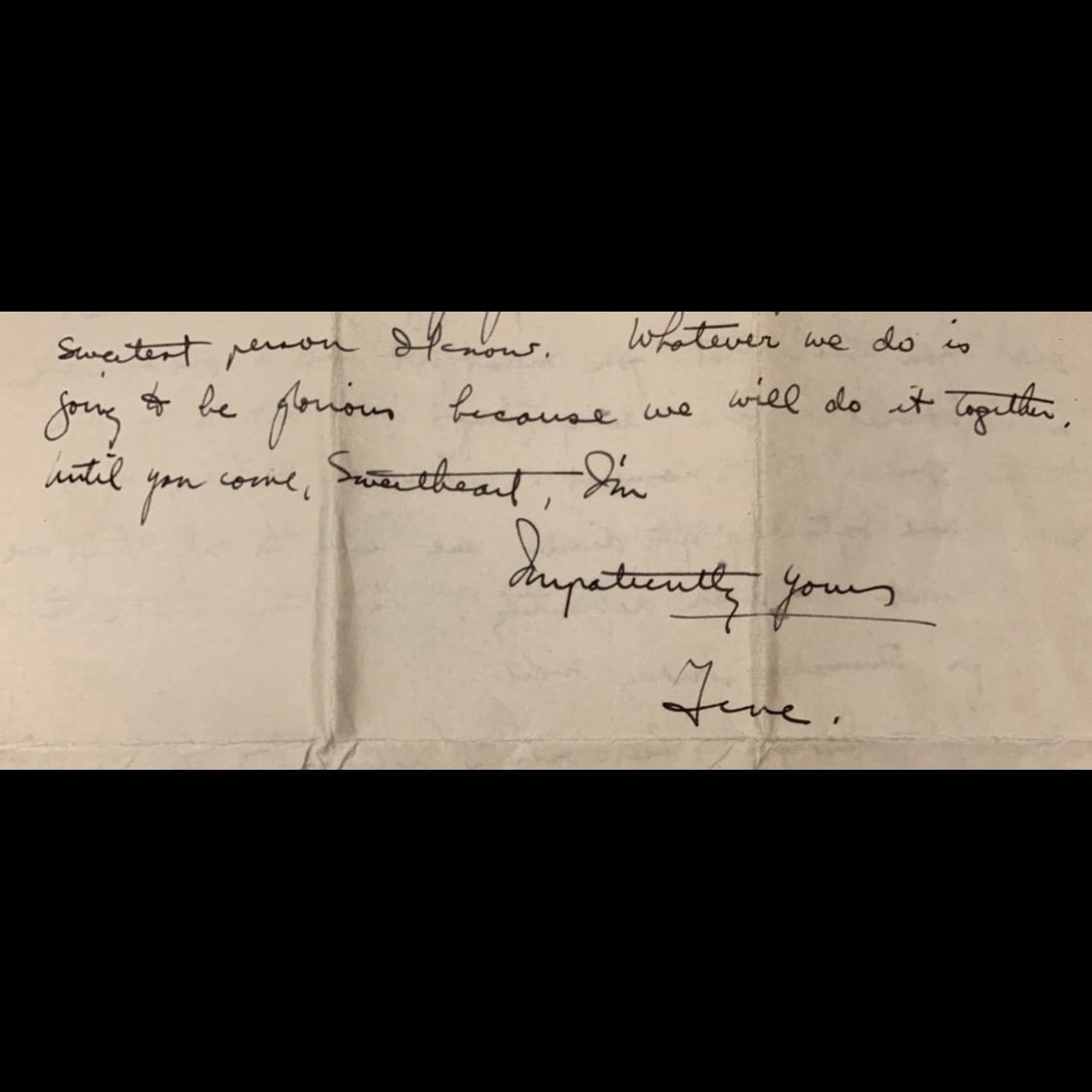"Collecting and Cataloging Saints:" A first look at the Eugene Exman papers
In 1916, a teenager in Ohio had what he believed to be a vision of God while riding his horse to bible study. He would spend the rest of his life attempting to replicate the experience. This obsession led him through a long and successful career in religious book publishing in New York City, but also to monklike California communal living, sessions with psychics and mediums up and down the East Coast, and, naturally, experimentation with LSD. It also resulted in an honorary degree in religious education, which he received from Middlebury College in 1952. He surrounded himself with mystics, philosophers, spiritualists, and borderline-cult members who had experienced similar run-ins with what he considered to be the divine, often playing a role in convincing these individuals to write books about their perspectives and experiences, then editing and publishing the results through his editor-manager position in the religious books department at Harper & Brothers. In other cases, he sought out authors who were already trying to peddle the sort of spiritual wares he was interested in and then fell into lifelong friendships with them. In his own words, Eugene Exman had “a hobby of collecting and cataloging saints.”

In 2013, almost a full century after Exman’s roadside epiphany, writer Stephen Prothero was approached by a Cape Cod neighbor who wanted to know if he would take a look at her late father’s personal library of religious texts. The neighbor in question was Judy Kaess, Eugene Exman’s daughter, now in her 70s. This “taking a look” project turned into a lengthy stint of historical research into Exman, whose star-studded personal library (many of his books inscribed to Exman by household names like Thornton Wilder, Richard Wright, and Coretta Scott King) raised as many questions for Prothero as it answered. The research turned an enlightening corner when Judy Kaess’s widower, Walter, pulled a number of boxes of personal papers from the barn on the property: Eugene Exman’s letters, notes, and study materials. Prothero decided to write a book.
The resultant biography, God, the Bestseller, was published by HarperOne (coincidentally, the successor of Exman’s own religious publishing department at Harper’s) in 2023 and began to hit the shelves just as I was filling out the new hire paperwork for an Archival Fellowship position at Middlebury College’s Special Collections. Exman’s family had generously donated the papers that Prothero had used for his research to Middlebury, and my job for the next twelve months was to process these papers: about ten boxes of correspondence, photographs, notes, drafts and edits, calendars, day books, and journals. I didn’t really know what to expect, besides the organizing, describing, and refoldering that I’d practiced in my MLIS (Master of Library and Information Science) classes and internships. The Wikipedia page for Eugene Exman mostly highlighted his role as an editor and publisher of some major spiritual thinkers, so I figured that his papers would contain a lot of, well, editing and publishing stuff: corrections to manuscripts, dry notes on sermons from my grandparents’ youth, maybe a couple of good letters from interesting people.

Instead, I sat down with the first box of materials and abruptly came face-to-face with a whole lot of personality: juicy interpersonal drama, callings-out via typewritten letter, hot theological debate among people who I was pretty sure were essentially coworkers, impassioned attempts to understand God scribbled into postscripts. I realized very quickly that I was going to have trouble separating Exman’s personal letters from his professional ones, as his tendency to mix social, spiritual, and editorial projects was even more pronounced in his correspondence than Prothero’s biography, which I read a few weeks after starting at Middlebury, led me to believe. And then there was Eugene Exman himself: quite literally all over the map, filling out dream journal entries in between flights to California and France, declaring his adoration for his wife (nicknamed “Sunny”) in all caps in early (sometimes steamy) letters, and bickering back and forth with his lifelong best friend and fellow editor, Margueritte Harmon Bro, about the ins and outs of some author’s phrasing or some mutual friend’s business. In photographs, Exman shows up as an unassuming, bespectacled man with a thoughtful demeanor, but in his papers, he shows up pushing and declaiming, arguing and advising, and at times bemoaning his self-proclaimed inability to act in the same groundbreaking ways as the “saints” that he spoke and wrote and studied with. The letters he wrote were conflicted, impassioned, hopeful, despairing, misguided, passionate, and messy, at times reminding me more of the way that my friends and I talk to each other in 2024 than of the structure and poise I’d expected of this twentieth-century churchgoing businessman. Like Prothero, I was surprised by how invested I became in the web of stories – attempts to reach enlightenment alongside attempts to cross denominational boundaries, get-togethers and breakups, social justice and deep systemic problems, drugs and AA and communes and colleges – that surrounded Exman, who I quickly started calling “Eugene” when I talked about his papers. On the one hand, it seemed like I had little in common with this God-obsessed Ohioan who’d died twenty-plus years before I was born. On the other hand, Exman’s papers are nothing if not a case study in the ways in which connection can be found in unlikely places.
Anna Hurd is a second-year Masters of Library and Information Science/Archives Management student at Simmons University. She will be working to process the Eugene Exman papers at Middlebury through November 2024. Stay tuned for updates, behind-the-scenes glances into the processing process, and details from this enigmatic collection.

